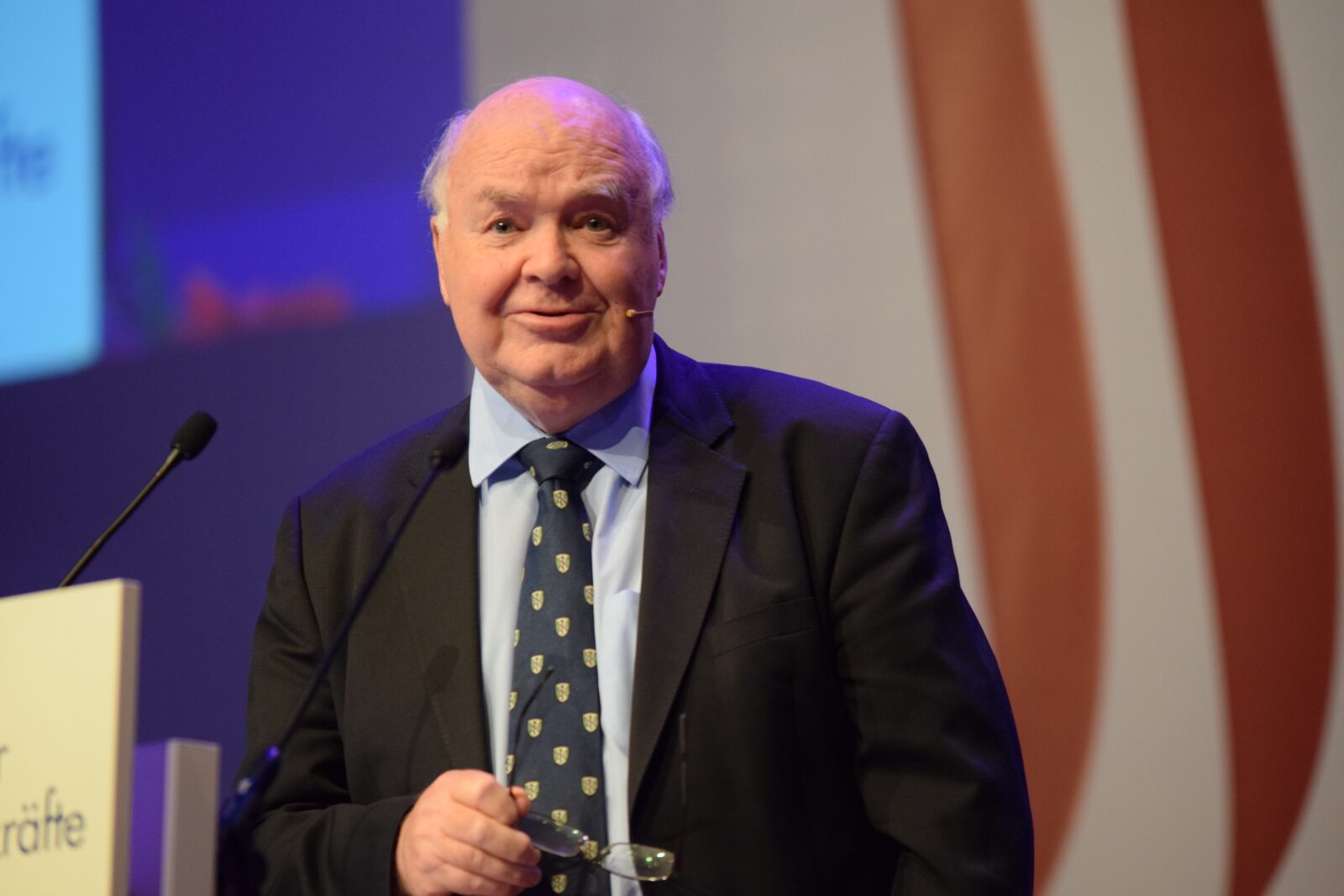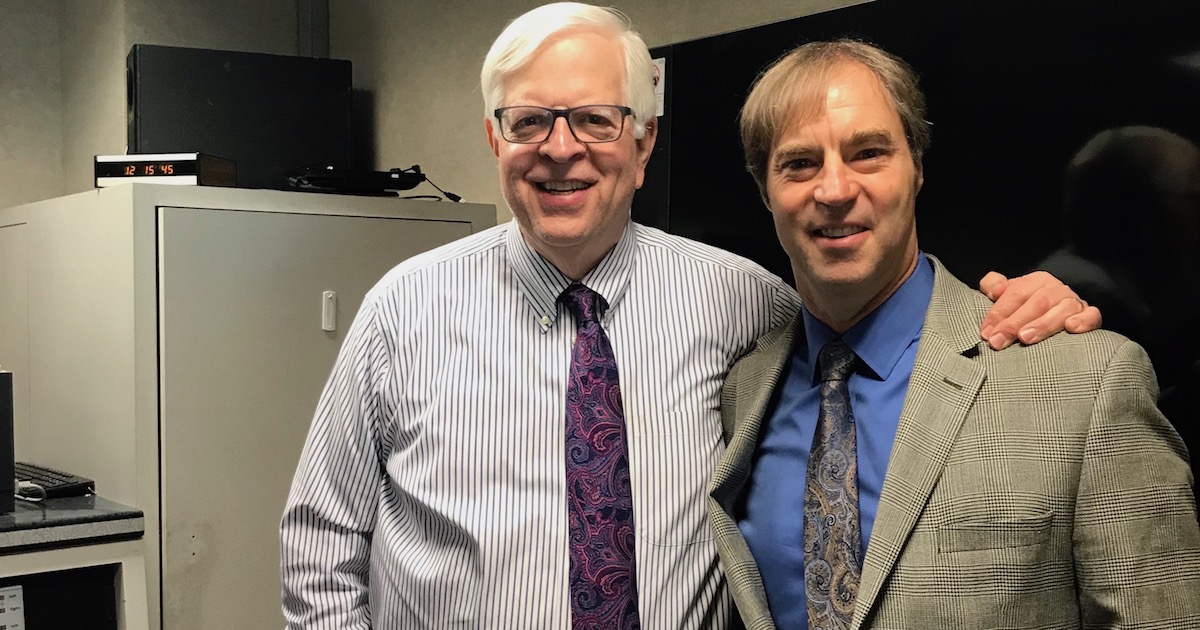


Physicist Brian Miller Answers the Big Bang Evaders
On this ID the Future, physicist Brian Miller looks at various attempts to evade the mounting evidence that the universe had a beginning, a Big Bang. Miller and host Casey Luskin first review the fascinating history of how the eternal universe model of the nineteenth century gave way to the Big Bang model. Then Miller walks through about a half a dozen attempts to evade a cosmic beginning after the Big Bang model had won the day. These evasions include the steady state model, the idea of an eternal cyclical universe, and the string landscape model. According to this model, our universe exists in a multi-dimensional brane (not “brain”) which exists in a higher dimensional space, and our multi-dimensional brane can collide with other branes, with each collision creating a Big Bang moment, a process said to have been going on for all eternity. Miller then explains why each of these attempts to evade a true cosmic beginning fail, and he says that if matter, energy, and space came into existence at the moment of the Big Bang, then it follows that the cause of this cosmic beginning is something immaterial. And since the cosmic beginning was finely tuned in many astonishing ways, Miller says, the cause of the Big Bang has left the signature of intelligent design. The cause, then, is an intelligent, immaterial being and one, obviously, of unimaginable power. Miller and Luskin then touch on a final attempt to evade these implications, the idea that the universe could have popped into existence from nothing—no God, no anything. But as Miller shows, the proposals along these lines, offered by such physicists as Lawrence Krauss and Stephen Hawking, do not actually start from nothing. There is always a something at the ground state, a something whose origin is left unexplained. The occasion for the conversation is Miller’s essay in the recent Harvest House anthology, The Comprehensive Guide to Science and Faith: Exploring the Ultimate Questions About Life and the Cosmos.

Neil Thomas and Hank Hanegraaff: An Autopsy for Darwinism
Today’s ID the Future kicks off a three-part series featuring Taking Leave of Darwin author Neil Thomas interviewed by radio host Hank Hanegraaff. In this first part, Hanegraaff begins by lauding Thomas’s book and underscoring how influential Darwin’s theory of evolution has been on Western culture. Then Thomas sketches the cultural milieu and individual motivations that he’s convinced drew Darwin toward his formulation of the theory of evolution by natural selection. Here the focus is not on the various evidential weaknesses of Darwin’s theory (which Thomas does cover in his book) but on a question that puzzled Thomas once he became convinced of just how evidentially weak the case for Darwinism was: How was it that a theory so poorly supported by the evidence (such that even some of its most ardent supporters found themselves rejecting key aspects of it) nevertheless came to dominate the academy? Tune in to find out what Thomas ultimately concluded from his autopsy of the theory and its early reception, and stay tuned for episodes two and three. This audio material is used by permission of Hank Hanegraaff. Thomas’s book is available here.

Pt. 4: Stephen Meyer and Skeptic Michael Shermer
This ID the Future wraps up a lively four-part series between religious skeptic Michael Shermer and Return of the God Hypothesis author and philosopher of science Stephen Meyer. Here Meyer underscores the fact that every worldview must posit something as the prime reality, and he argues that positing mind (rather than matter) as the prime reality solves far more problems in science, and not just in origins science. What about the idea of a multiverse to explain the fine tuning of the laws and constants of physics? Meyer concedes that this is a solution of sorts, but it comes at a tremendous cost, which he explains. That’s just a taste of where Meyer and Shermer go in this final segment. Also threading its way through this rich finale–Deepak Chopra’s eastern take on reality, the mind-bending idea of absolute nothingness, mind-body dualism, Michael Polanyi, John Searle, and even a cameo appearance from the Boltzmann brain. This podcast series is posted here by permission of Michael Shermer. The full video conversation is available here.

Stephen Meyer Defends His New Book to Cosmologist Brian Keating, Pt. 2
Today’s ID the Future continues (by permission) the long-form conversation between Stephen Meyer, author of the newly released USA Today bestseller Return of the God Hypothesis, and UC-San Diego physicist Brian Keating. Here in part two the conversation turns to quantum cosmology, multiverse hypotheses, Stephen Hawking, and Hawking’s now-you-see-it/now-you-don’t use of imaginary time to deny a cosmic beginning. Meyer argues that Hawking’s imaginary-time trick doesn’t wash, there remains powerful evidence for a cosmic beginning, and that this beginning is best explained as the creation act of an intelligent, immaterial being. Also, Keating and Meyer tackle the question: Did Isaac Newton really blunder by invoking a God of the gaps to periodically tweak the solar system to smooth out perturbations? That is, was Newton led astray by his theism to opt for a science-stopping invocation of God to explain away a problem in his theory? Meyer’s PhD in the history and philosophy of science happens to be from Newton’s university, Cambridge, and Meyer says that he researched the issue in particular and no, the oft-repeated claim is a myth. What is true, Meyer says, is that Newton, Kepler, and other founders of modern science were inspired to search out and find the rational order hidden in nature because they were theists, convinced that nature was the work of a rational Creator. Check out Keating’s website here, and get a copy of Meyer’s new book here.

Stephen Meyer Defends His New Book to Cosmologist Brian Keating, Pt. 1
Today’s ID the Future features, by permission, the first part of a long-form conversation between Stephen Meyer, author of the newly released Return of the God Hypothesis, and Brian Keating, the Chancellor’s Distinguished Professor of Physics at the Center for Astrophysics & Space Sciences at the University of California, San Diego. Do the laws of cosmology, physics, and biology exhibit dispositive evidence of a cosmic designer? Do the Big Bang and fine tuning suggest a “Mind” behind it all? In the book and in this conversation Meyer argues yes. Keating tells what he likes about the new book and draws on his deep knowledge of cosmology to press Meyer with some great followup questions. Check out Keating’s website here, and learn more about Meyer’s new book here.

John Lennox and Steve Meyer Against the Tide, Pt. 1
On this ID the Future, Stephen Meyer and Oxford University mathematician and thinker John Lennox begin a three-part conversation about Lennox’s upcoming documentary, Against the Tide: Finding God in an Age of Science. As Lennox explains, he grew up as the child of a uniquely non-sectarian Christian family in Northern Ireland, with parents who encouraged him to question broadly, read widely, and respect every person as a creature made in the image of God. He tells of his encounters with C. S. Lewis at Cambridge University, relates a humorous story in which atheist Peter Atkins gave him the title of one of his books, and describes his front-row seat as he watched the scientific atheism of the 1960s transform into the aggressive and contemptuous New Atheism of more recent years — a story that includes Lennox’s own debate with Richard Dawkins.

Guillermo Gonzalez and Jay Richards on Recent Discoveries Supporting The Privileged Planet
On this episode of ID the Future, Jay Richards and astrobiologist Guillermo Gonzalez discuss several discoveries made in the past 15 years supporting their conclusions in The Privileged Planet: How Our Place in the Cosmos Is Designed for Discovery. Gonzalez shows how the book’s thesis — that conditions for life and scientific discovery meet on earth to a fine-tuned degree that strongly points toward design — has been confirmed multiple times.

How Stephen Meyer Changed Dennis Prager’s Mind, Pt. 2
This episode of ID the Future features the second half of philosopher of science Stephen Meyer’s recent appearance on the Dennis Prager Show. Meyer and Prager discuss some of the critics of intelligent design who tie themselves in knots: Theistic evolutionists who claim life arose through a completely undirected process directed by God, and materialists who insist on a universe from “nothing,” but where “nothing” means something.
Read More ›